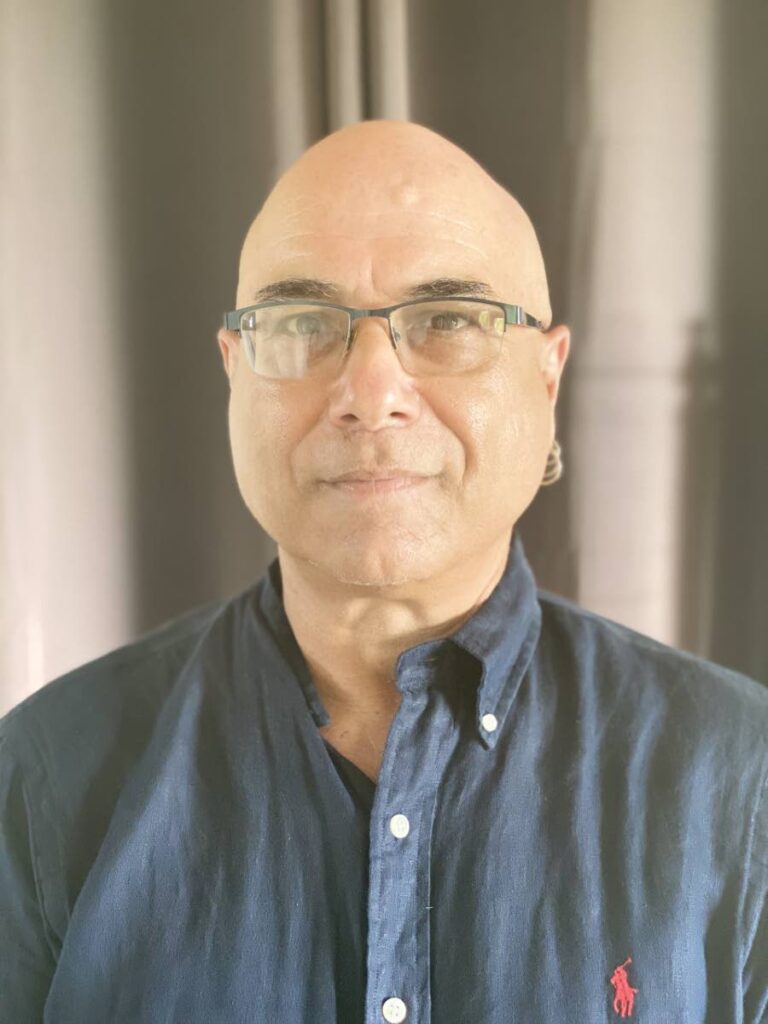Brinsley and Milan

THANK GOD IT’S FRIDAY
BC Pires
TWO GREAT losses in one week and I’m fearful of a hat-trick for Death.
The beloved UWI academic Prof Brinsley Samaroo, 84, and the Czechoslovakian writer Milan Kundera, 94, both slipped away, the old Brinsley drawing a lot of love from people writing in our newspapers and the even older Milan doing the same in newspapers all over the world.
Both of them changed the lives of others on different scales, Kundera being a world figure and Samaroo a Trinidadian one, but it’s easy to name the greater influence on me.
Milan Kundera wrote a string of magnificent books, including the three that blew me away, The Unbearable Lightness of Being, The Book of Laughter and Forgetting and Immortality. The obituary pages of the world’s leading newspapers recognise how much he changed novel-writing itself.
But Kundera also kind of fixed me up with a woman to whom I’m still affixed. When we met almost 30 years ago, one of the first conversations I had with my wife was about Unbearable Lightness, which she had just read. (In those days, you could buy great literary works in Trinidadian bookstores.)
That Kundera convo led to many others and we’re still talking. And laughing and remembering. And bearing that challenging lightness of being together.
So I owe Milan.
But comparing him to Brinsley is like comparing ludo and backgammon, T20 and Test cricket or blended scotch and single malts.
At UWI in 1978, Brinsley Samaroo’s Foundations of New World History course was one of four I took in my successful attempt to transfer from the Faculty of Arts to that of Law the next year. The others were Carl Parris’s Introduction to Politics (in which he wondered why Aboud always married Sabga and not Parris), a forgettable introduction to sociology unworthy of capital letters here today and Prof Bridget Brereton’s European History.
When I told her, decades later, that her course had led to my deciding to write for Trinidadian newspapers, she smiled broadly and said, “You mean I have to take some of the blame?”
Indeed you do, professor.
But not as much as Brinsley.
Brinsley’s Foundations was the first thing I learned in any school in Trinidad that did not make me feel relatively ashamed when I considered the world as against TT, or the Old World versus the New one, or myself and the writers I admired most.
In the arts lecture theatre, Brinsley Samaroo taught me that, at a time when the citizens of Paris were flinging their faeces into the streets from upper-storey windows, aiming for the central gutter, the citizens of Tenochtitlan, the great Aztec city state, had an underground sewerage system. When Europeans were tearing chickens apart with their fingers at dinner parties, the Aztecs and Mayans were using knives and forks. Where old people were dying in poverty in Europe, the elderly were cared for by a welfare state in what is now Mexico.
Samaroo was the first person in a school to tell me how great it was to be from the New World, never mind how we got here. I was nearly 20.
And Samaroo dealt in truth, not in the ersatz smiley-happy-make-them-feel-better-about-themselves content modern teachers stuff down their students' throats today.
Samaroo told me the unvarnished truth in every minute of every lecture he gave for a whole school year. Sangre Grande, eg, was so called because Spanish soldiers massacred a whole heap of indigenous people there, and Sangre Grande translates from the Spanish as "Big Blood." (And when the soldiers caught up with the Amerindians who’d escaped the first slaughter by running a couple of miles away, they named that particular murder spot Sangre Chiquito: "Little Blood.")
Without Brinsley Samaroo, there is a good chance that today, I would still be ashamed of where I came from. And who I was.
Especially when compared with the metropole. I would always have been, and always would have felt like, the hinterland.
What do you call a man who emancipates you from mental slavery, if not a master teacher?
BC Pires is in a Brinsley Samaroo class by himself

Comments
"Brinsley and Milan"